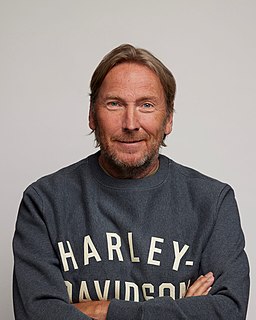A Quote by Ralph Waldo Emerson
In daily life what distinguishes the master is the using those materials he has, instead of looking about for what are more renowned, or what others have used well.
Related Quotes
Well used are those cruelties (if it is permitted to speak well of evil) that are carried out in a single stroke, done out of necessity to protect oneself, and are not continued but are instead converted into the greatest possible benefits for the subjects. Badly used are those cruelties which. although being few at the outset, grow with the passing time instead of disappearing. Those who follow the first method can remedy their condition with God and with men; the others cannot possibly survive.
Those who know others are intelligent Those who know themselves have insight. Those who master others have force Those who master themselves have strength.Those who know what is enough are wealthy. Those who persevere have direction. Those who maintain their position endure. And those who die and yet do not perish, live on.
I call upon governments to start supporting companies to use more sustainable materials in their products instead of continuing with antiquated incentives, such as import duties on synthetic materials that are in principle much higher compared with those placed on leather goods regardless of the environmental footprint.
I bargain-shop all the time, but then I started learning about how those products are made and about how if you spend a little bit more money on ethical clothing that are using recycled materials - like, my favorite dresses are by Christy Dawn... the carbon footprint that they're leaving is so minimal, and it's really worth the extra money.
IMPORTANT Book reading is a solitary and sedentary pursuit, and those who do are cautioned that a book should be used as an integral part of a well-rounded life, including a daily regimen of rigorous physical exercise, rewarding personal relationships, and sensible low-fat diet. A book should not be used a as a substitute or an excuse.
I could see no reason why used tram tickets, bits of driftwood, buttons and old junk from attics and rubbish heaps should not serve well as materials for paintings; they suited the purpose just as well as factory-made paints It is possible to cry out using bits of old rubbish, and that's what I did, gluing and nailing them together.
You become more and more charged with your life and with a life that you're observing. When I was younger, I was actually looking forward to getting older, to have more insight, more understanding. I'm much more tolerant with others and with myself. I'm not in rebellion all the time, I'm not angry so much. But all those feelings are really useful [when you're young] because they fire us, as long as they don't get out of control.









































